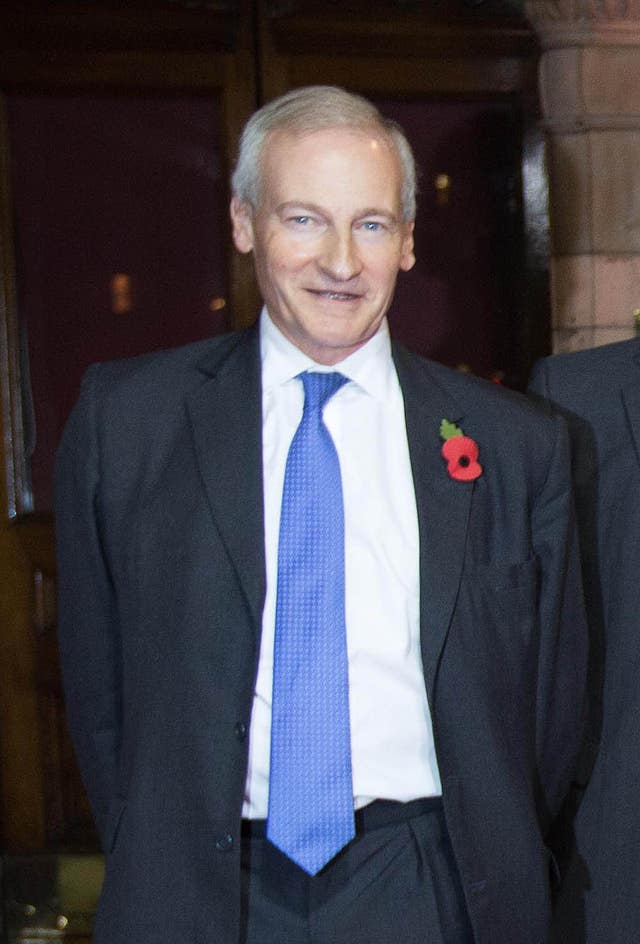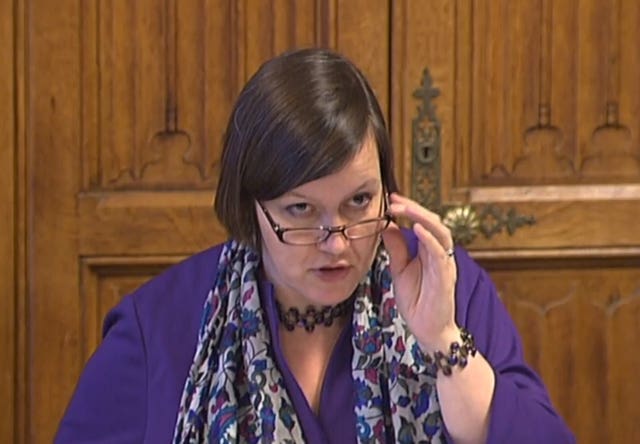Zahawi allows HMRC to pass his tax details to PM’s ethics adviser
Pressure on the Tory Party chairman increases as the head of HMRC says there are no penalties for ‘innocent errors’.

Nadhim Zahawi has authorised HM Revenue & Customs to pass details of his tax affairs to the Prime Minister’s ethics adviser – who is investigating if he broke the rules for ministers – as Rishi Sunak continued to resist calls to sack him.
Pressure on the Tory Party chairman, who has admitted paying a penalty as part of an estimated £4.8 million settlement with HMRC, intensified after the head of the organisation said such penalties were not issued for “innocent errors”.
A source close to Mr Zahawi said that he has now given HMRC permission to speak to Sir Laurie Magnus who is investigating whether his actions represented a breach of the Ministerial Code of Conduct.
Speaking during a Cabinet away day at Chequers – his grace-and-favour country residence – Mr Sunak said he would wait for Sir Laurie’s report before making any decisions while refusing to be drawn on when he had learned his minister had paid the reportedly 30% penalty.
Asked why Mr Harra’s comments were not evidence enough to sack Mr Zahawi, the Prime Minister told broadcasters: “I’m not going to pre-judge the outcome of the investigation, it’s important that the independent adviser is able to do his work.
“That’s what he’s currently doing, that’s what I’ve asked him to do and I’ll await the findings of that investigation.”
A week ago, Mr Sunak told Prime Minister’s Questions that Mr Zahawi had addressed the fiasco “in full”.
Mr Sunak insisted that “no issues were raised with me” when he appointed Mr Zahawi to his current role, amid questions over his political judgment.
Earlier in the day, Mr Harra was pressed on questions surrounding the minister’s tax dispute while appearing before MPs on the Public Accounts Committee.
Mr Harra was at pains to stress that he could not comment on individual cases, but added: “Carelessness is a concept in tax law.
“It can be relevant to how many back years that we can assess, can be relevant to whether someone is liable to a penalty and, if so, what penalty they will be liable to for an error in their tax affairs.

“So if you take reasonable care, but nevertheless make a mistake, whilst you will be liable for the tax and for interest if it’s paid late, you would not be liable for a penalty.
“But if your error was as a result of carelessness, then legislation says that a penalty could apply in those circumstances.”
The row surrounding Mr Zahawi centres on a tax bill over the sale of shares in YouGov – the polling firm he founded – worth an estimated £27 million and which were held by Balshore Investments, a company registered offshore in Gibraltar and linked to Mr Zahawi’s family.
Mr Zahawi has said that HMRC concluded there had been a “careless and not deliberate” error in the way the founders’ shares, which he had allocated to his father, had been treated.
Pressed on the case, Mr Harra also suggested there could be certain specific circumstances in which he could appear before the committee to discuss some details of a minister’s tax affairs, as he said he would aid the ethics inquiry into Mr Zahawi in any way he could.
“It would not be normal for me to account to this committee for a person’s tax affairs, but if there are general issues about how we manage tax and I’ve got the ability to be disclosive, that’s obviously something I would take advantage of,” he said.
“If we are asked by the independent adviser on ministerial interests to help with the inquiry, we will do so in any way we possibly can.”
But he also indicated that Mr Zahawi would need to grant his consent as part of such a process due to the confidential nature of an individual’s tax affairs.
Downing Street said Mr Sunak “expects participation” with the inquiry.
Mr Harra told MPs that HMRC was not routinely contacted by the Cabinet Office or Downing Street regarding ministerial appointments.
It comes amid speculation that the work of the independent adviser could be completed in a matter of days, or at most a few weeks.
Downing Street did not deny on Thursday that it had asked Sir Laurie to expedite the process, adding that it would like the inquiry to be “concluded as quickly as possible”.
One senior minister suggested the result of the investigation could be on Mr Sunak’s desk within 10 days, while The Times reported that the independent adviser was expected to expedite the process and report back within three weeks.
Work and Pensions Secretary Mel Stride told ITV’s Peston programme on Wednesday that it “wouldn’t be untypical” for Sir Laurie to complete his investigation within 10 days.
“I can’t be drawn on an arrangement of which I don’t know all the details,” he said.

The Prime Minister told MPs on Wednesday that it would have been “politically expedient” to sack Mr Zahawi but that he wanted to stick to “due process” before acting.
Questioned by Public Accounts Committee chairwoman Dame Meg Hillier, Mr Harra admitted it could be frustrating if prominent figures or politicians made false claims about their personal tax affairs.
He said HMRC would not typically intervene to correct the record, but told MPs “as a general rule our default is that we don’t disclose, and it can be a source of frustration for HMRC because people will brief the press or perhaps brief MPs about their tax affairs”.
He added: “We will sometimes feel it’s not the full story, but we have to deal with it on the basis of their disclosure because we’re not in a position to disclose further information.”





